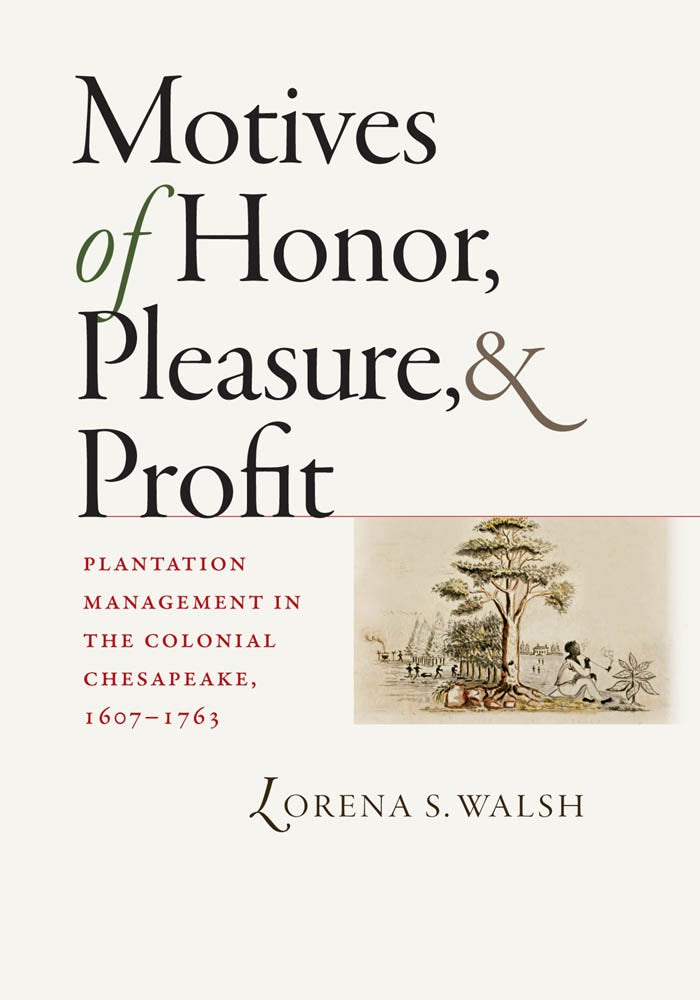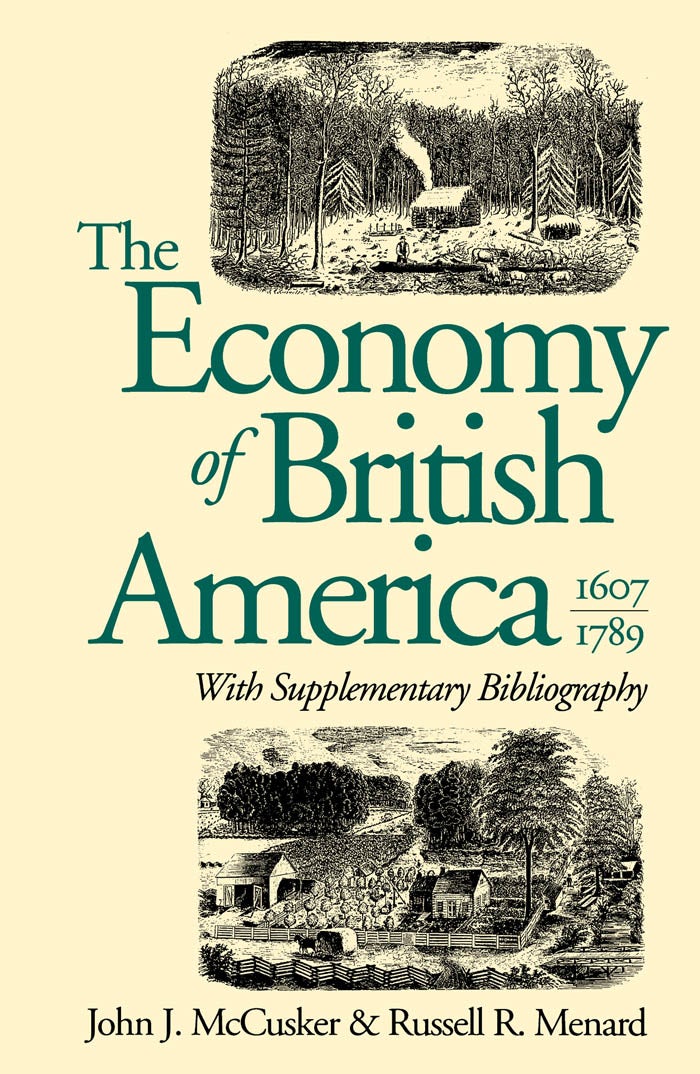
Motives of Honor, Pleasure, and Profit
Description
Lorena Walsh offers an enlightening history of plantation management in the Chesapeake colonies of Virginia and Maryland, ranging from the founding of Jamestown to the close of the Seven Years’ War and the end of the “Golden Age” of colonial Chesapeake agriculture.
Walsh focuses on the operation of more than thirty individual plantations and on the decisions that large planters made about how they would run their farms. She argues that, in the mid-seventeenth century, Chesapeake planter elites deliberately chose to embrace slavery. Prior to 1763 the primary reason for large planters’ debt was their purchase of capital assets–especially slaves–early in their careers. In the later stages of their careers, chronic indebtedness was rare.
Walsh’s narrative incorporates stories about the planters themselves, including family dynamics and relationships with enslaved workers. Accounts of personal and family fortunes among the privileged minority and the less well documented accounts of the suffering, resistance, and occasional minor victories of the enslaved workers add a personal dimension to more concrete measures of planter success or failure.
About The Author
Lorena S. Walsh was for twenty-seven years a historian at the Colonial Williamsburg Foundation. She is author of From Calabar to Carter’s Grove: The History of a Virginia Slave Community and coauthor of Robert Cole’s World: Agriculture and Society in Early Maryland(UNC Press).
Awards
Frank L. and Harriet C. Owsley Award, Southern Historical Association (2011)
Reviews
“A work of near-encyclopedic depth of knowledge, enormously rich insight, elegant prose, and powerful argumentation. It successfully marries the perspective of a synthesis with the originality of unbelievably extensive–and intensive–research. This work brings both subtlety and precision to the exploration of plantation management in the colonial Chesapeake. . . .Ultimately its success lies in its complementing of qualitative and quantitative evidence as these planters emerge as real figures rather than abstractions.”–The Frank L. and Harriet C. Owsley Award committee, Southern Historical Association
“This landmark book offers a significant new interpretation of the seventeenth- and eighteenth-century Chesapeake’s political economy. . . . The most complete and perceptive look at large planters’ economic strategies. . . . Retains a narrative flow as the personalities and grim realities of famous and obscure planters and their enslaved work forces are revealed.”–Journal of American History
“The result of decades of painstaking archival research, this book is stunning in its depth, breadth, and significance. Walsh is remarkably clever at teasing out meaningful insights from seemingly intractable sources. . . . Though intended for a scholarly audience, this book’s conclusions will undoubtedly reach a wider audience through its influence on both academic and public historians. . . . Highly recommended.”–Choice
“In her masterful new book Lorena S. Walsh has meticulously researched and carefully interrogated the management practices of planters for the thirty-two best-documented plantations of Virginia and Maryland. . . . A tour de force of persuasive and fluent analysis.”–American Historical Review
“Walsh makes a major contribution to scholarship about the origins and development of slavery in the Chesapeake.” —The Historian
“[Walsh] has certainly set the standard for the economic history of this particular time and place.”–Anglican and Episcopal History
“This book serves as a timely reminder for what economic history can do for us, and what we owe to those pioneering historians who continue to produce such stimulating and important studies in early American history.” —Southern Historian
“An indispensible guide to the economics of early Virginia and Maryland . . . A distinguished addition to the literature, which all scholars of early America will need to absorb.”–Journal of Interdisciplinary History
“Such a rich study of the business of planting is unique. As a synthesis of what is known, Motives of Honor, Pleasure, and Profit is impressive. As an analysis of economic strategy, it answers old questions and raises and answers new ones . . . . This is a book that everyone interested in the early history of the South and indeed America should read.”–Journal of Southern History
“An outstanding work of historical ethnography and regional history that should be read by anyone concerned with the history and folk culture of the South.”–Journal of Folklore Research






